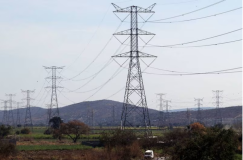Buscar
Director: Froilán Meza Rivera
redaccion@cronicadechihuahua.com
La Crónica de Chihuahua - Relatos urbanos, ciencia, cultura y noticias.
The "Brexit" and the contradictions it reveals
By Abel Pérez Zamorano
La Crónica de Chihuahua
Junio de 2016, 09:30 am
In the UK a referendum will be held on June 23 to decide whether or not the country remains in the European Union (EU). Prime Minister David Cameron, is personally in favor of the Union, but within his party, the Tories, and their government, there is a sector of advocates of the Brexit (British Exit), a trend that until today leads in polls, although nothing is written. Actually the referendum is the latest in a long series of events that reveal deep structural problems of integration, such as those of Scotland and Catalonia, and Greece with its debt crisis which threatened to lead to rupture. The referendum is not surprising if we remember that the United Kingdom has consistently followed a policy of restricted integration to the EU, giving priority to its strategic alliance with the United States, main destination for British exports. They did not make the euro their official currency nor did they sign the Schengen treaty, which involved 26 of the 28 countries and establishes freedom of transit. Thus, in its relationship with the EU England honors its insular character.
Today Cameron and his party are pressuring the Union to obtain a status of omission. Since February they have negotiated and managed to break free from social responsibilities, such as Brussels’ compliance with England’s reduced support granted to immigrants; however, there are social forces that want separation. Workers are concerned about the migratory wave competing for their jobs. According to the National Bureau of Statistics, in 2015 net immigration totaled 333 thousand people: in 2014 they were 313,000, half of which came from non-European countries, exceeding the goal amount of a maximum of one hundred thousand annually set by Cameron. In 2014 alone 264 000 Europeans arrived (El País, May 26). Immigration as a threat to jobs is the main argument used by conservative Boris Johnson, former Mayor of London, one of the main promoters of Brexit. In this regard, El País, June 13, reported that "... among the working class, according to a recent study, support for the EU stands at 36%, compared to 52% of the middle class." And the inexistent economic growth in Europe and the resulting tremendous unemployment rate are pushing emigration to rich countries.
There are 1.2 million Europeans working in England, 700 thousand of them are Polish, and many are Spanish: in 2013 they were 93,000 and now total 150,000. Add the immigrants from Africa, Asia and the Middle East who, risking their lives, cross the Mediterranean looking for a job they cannot find in their countries. As a result, immigration along with the low economic growth in Europe foster new and renewed feelings of nationalism and xenophobia in richer countries, including northern Europe, traditionally welcoming. During England’s last elections a considerable positioning of the pro-independence party UKIP was recorded.
Meanwhile, business leaders pursue independence in terms of financial regulation and labor obligations, seeking to evade European standards and avoid contributing to bailouts of poor countries. City demands special treatment in regulating their operations. Certainly, others are worried about the exit, they foresee a reduction in trade and a loss of foreign investment which they receive under the protection and supervision of the Union, as the market size would be reduced, which explains the position of the divided electorate. Some voices warn of a sustained decrease in GDP growth, but according to Paul Krugman, there would be economic crisis; even a cheap pound could stimulate exports. Leaders of the capitalist world have joined opposition to the Brexit; for example, as a deterrent, the OECD has forecast growth of just 1.7 percent this year if England abandons the Union, due to the generated uncertainty, prequel of which would be the increase in the country risk premium and the depreciation of the pound, especially against the dollar, which becomes expensive due to increased demand. Angela Merkel is also opposed, supported by public opinion in her country, explained by the fact that Germany looks fearfully onto facing alone the expenses of the Union, without the United Kingdom, "net contributor" which gives more than it receives, which, even if it does stay within the EU, will enjoy conditions of preference and greater independence.
From a geopolitical perspective, European leaders fear that a divided Europe will weaken against the growing influence of Russia. Media such as the BBC insist that Vladimir Putin has not issued a statement and would be happy with the Brexit, as this would divide Europe and increase the specific political weight of Russia in Europe, Asia and the Middle East. The EU is also weakened against the strong economic thrust of China, as European national markets are too small to compete with the giant. And while Barack Obama has spoken out against the Brexit, it is also true that a fragmented Europe would be more easily dominated by the NATO and the United States, economically, politically and militarily, so that the latter would be strengthened as sole leader of the capitalist world, and the dollar as universal currency; to the hegemonic pretensions of the United States, a weathered Europe, unable to counterbalance is also favorable; for the latter to be a world leader and balancing factor, it’s union is decisive, and England is not just any piece: it is the second largest economy. But England is not, by far, the only difficulty for the cohesion of Europe: there are profound differences that prevent it, such as the division between poor countries (Spain, Greece, Portugal and several within Eastern European) and rich countries (Germany, England and France), and disparities in development, with the contradictions that have thus resulted from them, to which regional centrifugal forces are added.
But make no mistake, the enemy of the British, German or French workers are not immigrants, but a system that pushes the poor citizens of underdeveloped countries to seek employment where there is prosperity. The root cause of the problem is the looting of wealth and economic dismantling of subject countries, causes of poverty and unemployment. Nor is the problem found in Greece or other poor countries of the Union: they are victims whose lag is only the correlative of the prosperity of the rich. While there were enough markets, Western Europe grew, covering its lacking workforce with immigrants, but now they are a hindrance to economic stagnation, while there is an exhaustion of markets and economies shrink. Hence the entrenchment trends, as Donald Trump is an example on this side of the ocean with his proposal to build a wall that prevents the entry of Mexicans. We are therefore faced with one more symptom of the global crisis of capitalism burdened by deep contradictions.
©2024 La Crónica de Chihuahua - Relatos urbanos, ciencia, cultura y noticias
La Crónica de Chihuahua es un diario independiente, enfocado a describir las singularidades y la cotidianidad de la comunidad chihuahuense.























